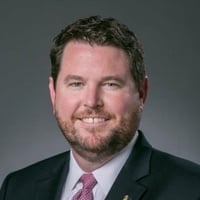
About CASP
Keep your campus current and competitive with a CASP professional leading your auxiliaries.
Certified Auxiliary Services Professional. The only benchmark certification that measures the needed competencies of college and university executives who oversee multiple auxiliary services.
CASP adds value to your institution by:
Easing leadership succession and staff transitions, Improving cross-departmental collaboration and decision making, Minimizing conflict when auxiliary services integrate, Increasing operational efficiencies and revenues, Enhancing campus-wide upgrades in contemporary ways
This certification offers an accelerated track to obtain necessary cross-functional knowledge and fills competency gaps to build confidence in new leaders and in those who hire them.
Select an option below:
- About CASP
- Prepare For CASP
- Apply For CASP
- CASP Recertification
- CASP Directory
- CASP Testimonials
Purpose
NACAS created CASP so universities can responsibly prepare for leadership succession planning, benefit from operational efficiencies, and stay current in auxiliary-related practices that must adapt to emerging technologies and trends.
By placing the right leaders into executive auxiliary roles who have been validated by a rigorous and reputable certification program, valuable collaboration increases on campus and higher education institutions experience eased staffing transitions, quicker decision making in cross-departmental meetings, and less conflict when various service functions integrate.
Promise
CASP provides specialized education and exposure to resources that one can’t gain from a degree or professional experience in one-to-few auxiliary service areas. It provides an accelerated track for a high-performing candidate to obtain the cross-functional knowledge that is necessary to perform at an executive level. Designed to offer candidates their own skills assessment and pathways to develop in the areas needed, CASP fills competency gaps to build confidence in new leaders and in those who hire them.
History of CASP
CASP began in 2004 when NACAS members requested that the association establish a process to validate the knowledge of professionals who lead multiple campus auxiliaries.
After five years of extensive industry research, NACAS took a bold step in 2009 and began to create a certification. Today, CASP is the only certification that validates the competencies that one operating at the level of director of above must demonstrate to successfully oversee the delivery of multiple auxiliary services found on a college or university campus.
The Exam: The CASP program includes a 150-question, multiple-choice exam that demonstrates specialized expertise as campus auxiliary service leader – giving those that pass and their institutions the confidence to set sophisticated strategy, forge business partnerships, and make transformative decisions to benefit campus communities.
The Benefit: Vast in responsibilities, the Auxiliary Services profession requires leaders to bring new meaning to multi-tasking, foresight, and problem-solving as these skill sets relate to business operations and service design. CASP provides a unique opportunity to demonstrate proficiency in the delivery of the following auxiliary services:
- Management
- Leadership
- Marketing, Communications, and Business Relations
- Student Development
- Operational Areas: Physical Facilities, Food Services, Bookstores/Commercial Retail, Card Services, Automated Vending
Eligibility Requirements
CASP proves proficiency, and there are certain milestones exam takers must achieve before their testing date.
They must:
- Be employed or contracted on a college or university campus and directly provide auxiliary/ancillary services
- Have four years’ full-time experience in management (within the last ten years) directly related to auxiliary/ancillary services (non-academic support services).
- Three years of these must be in higher education auxiliary/ancillary services
ASCOG Recording
2021 CASP Roundtable: Am I ready for CASP?
| First Name | Last Name | Institution/Company |
|---|---|---|
Pablo DaNesha L. Philomen Megan Ana Mariola Chrystal Stephen LeVita Jessica Jim Brian Hannibal Debra Margot Jack Lisa Jared Carrie Lee Jerry Chris Antwan Anthony Chad Jason David Anthony Bill Martha Lorelle Kelly Kerri Brandy Jim Staphanie Joseph Deanne Ricardo Charles Ann Joseph Megan Carlos Daniel Lauren Lisa Rodney Ryan Peree Victoria Brandon Troy Deb Brett Ryan Gavin Allen Patti Charles Kris Jonathan Geoffrey Andy Todd Kathryn Larry Jeremy Jason Darrin Andrew Jackson Sokol Emily Steven Dana William Rick Paul Helen Adam Jeremiah Ayumi Rico Jenn Millie Joseph Ben Ron Kimberly Jenn Chris Zane Burt Trent Carrie Nora Kathy Lakshmi Heidi Scott Thomas John Tim Eric Argyle Tyrone Joseph Carolyn Neal Rich John Mahendran Victoria Matt Jussi Rick LaNiece Esmeralda David Pinky Kristy David David Dave Sonya Josh David Craig |
Aguilar, CASP Allen, CASP Allen, CASP Allred, CASP Alvarez, CASP Arriola, CASP Bailey, CASP Barr, CASP Bassett, CASP Bender, CASP Best, CASP Browning, CASP Burton, CASP Carpenter, CASP Carroll, CASP Casper-Woodhead Catanese, CASP Ceja, CASP Charley, CASP Clark, CASP Clemmer, CASP Clifford, CASP Clinton, CASP Condo, CASP Conville, CASP Cope, CASP Corral, CASP Coschignano, CASP Cox, CASP Davidson, CASP Davies, CASP Dawson, CASP Demeri, CASP Dwyer, CASP Dwyer, CASP Edgett, CASP Eggleston, CASP Ellison, CASP Escobar, II, CASP Farrell, CASP Floresca, CASP Fortune, CASP Freeman, CASP Garcia, CASP Gaytan, CPA, MST, CASP Gleason, CASP Goberis, CASP Gomez, CASP Greene, CASP Griffin, CASP Hanson, CASP Hendricks, CASP Higdon, CASP Huebler, CASP Jackson, CASP Jacobs, CASP Jensen, CASP Josey, CASP Kidd, CASP Kissel, MBA, CASP Klinger, CASP Kukta, CASP Labe, CASP Lachman, CASP Larsen, CASP Le Gros, CASP Lee, CASP Leiferman, CASP Levy, CASP Lyons, CASP Mansfield, CASP Mathews, CASP Mato, CASP Messa, CASP Miller, CASP Mims, CASP Moran, CASP Moreci, CASP Murphy, MBA, CASP Nakos, CASP Nevill, CASP O'Connor, CASP Orgar, CASP Ovalles, CASP Paiotti, CASP Parke, CASP Pearson, CASP Perlman, CASP Portwine, CASP Rademacher, CASP Reed, CASP Reed, CASP Reif, CASP Reynolds, CASP Rix, CASP Ryan, CASP Sande, MBA, CASP Sandor, CASP Sangaranarayanan, CASP Scribner, CASP Seagren, CASP Sekayan, CASP Shaw, CASP Siemens, CASP Silber, CASP Smallwood, CASP Smiley, CASP Sobieralski, CASP Spencer, CASP Stark, CASP Steele, CASP Strybos, CASP Subramaniam, CASP Suttmiller, CASP Suwalski, CASP Tinnemeyer, CASP Torres, CASP Tyree, CASP Valdez, CASP VanderSloot, CASP Varghese, CASP Vienne, CASP Wahr, CASP Weaver, CASP Wiseley, CASP Wright, CASP Wroniewicz, CASP Young, CASP Zemmin, CASP |
University of Texas - Rio Grande Valley University of Houston - Central Coppin State University University of North Carolina - Wilmington University of Miami University of Illinois - Chicago Bow Valley College Virginia Commonwealth University Howard University Palm Beach State College Cornell University University of Tennessee Miami Dade College University of Houston - Clear Lake Louisiana State University - Baton Rouge Old Dominion University University of Georgia - Athens California State Polytechnic University - Pomona University of Texas - San Antonio Virginia Military Institute University of Richmond University of Pittsburgh - Bradford University of Maryland, Baltimore County Swarthmore College Elon University University of Richmond California State Polytechnic University - Pomona Swarthmore College Texas A&M University - College Station Duke University Flathead Valley Community College Northeastern University Florida Polytechnic University Toronto Metropolitan University Washington University - St. Louis University of Texas - San Antonio Southern California University of Health Sciences California State University - San Marcos University of Texas - San Antonio University of Wisconsin - Oshkosh Carnegie Mellon University University of South Carolina - Columbia University of Richmond NACAS Past President - Garcia California State University - Fullerton Colorado State University - Fort Collins Colorado School of Mines University of Texas - Rio Grande Valley Georgia Institute of Technology University of Texas Health Science Center - Houston Georgia Gwinnett College Virginia Tech Individual - Troy Higdon University of Louisville University of Georgia - Athens University of Waterloo Weber State University University of Vermont Trent University California State University - Fullerton Boston University Penn State - University Park Lafayette College University of Hawai'i at Manoa CAL Poly Humboldt University NACAS Past President - Le Gros University of Colorado - Colorado Springs University of Minnesota - Duluth RecRe SUNY - Oneonta University of Virginia - Charlottesville College of William and Mary Montgomery College - Rockville University of Houston - Central Penn State - University Park Bucknell University Xavier University In transition Sinclair Community College Joliet Junior College Aramark Collegiate Hospitality Individual - Jeremiah A. O'Connor Simon Fraser University California State University - Long Beach Xavier University Georgia Military College Central Washington University Saint Louis University Saginaw Valley State University Ferris State University University of Utah - Salt Lake City Oakland University University of Texas - Austin Northwest College Red Deer Polytechnic Elon University Individual - Nora Sande University Of Mary Washington University of British Columbia University of California - Riverside University of Iowa California State Polytechnic University - Pomona Shepherd University Red Deer Polytechnic Concordia University - Austin North Carolina Central University Middle Georgia State University University of South Carolina - Columbia SUNY - Geneseo College University of Cincinnati NACAS Del Mar College - Corpus Christi Northeastern University University of Texas - El Paso University of Wisconsin - Milwaukee University of Texas Medical Branch - Galveston University of North Carolina - Charlotte Howard University University of Houston - Central Grand Valley State University Davidson College Lone Star College System Owens State Community College University of Alaska Anchorage Ohio State University (The) - Columbus Dickinson College University of Richmond Saint Louis University University of North Texas - Denton |
The Application
The application must be submitted through the online CASP Application below.
To complete the application, you will need to provide your personal contact information, education history, work history, and sign the NACAS Code of Ethics and Professional Conduct for Auxiliary/Ancillary Services below:
Review Remote Testing Prep Guide
CASP Recertification
As with most certification programs, recertification procedures are established to ensure designees are keeping up with changes and best practices in their profession and upholding the merit that is associated with their designation. Campus auxiliary service leaders who pass the certification exam are CASP for four years. To renew a CASP designation, certain recertification requirements must be met.
List of Organizations To Earn CASP Credit
There are two categories in which you can earn credits:
1) Training/Continuing Education – a minimum of 40 credits
2) Service & Leadership – a maximum of 20 credits
(All 60 credits may be earned in the Training/Continuing Education category, if you prefer.)
1) Training/Continuing Education
- Attending a live NACAS educational session, webinar, or virtual roundtable: 0.5 credits per 1/2 hour of scheduled programming.
- Attending a live educational session, training, webinar, or virtual roundtable from another higher education auxiliary service related association or institutional provider: 0.5 credits per 1/2 hour of scheduled programming.
- Recorded Education: 0.5 credits per 1/2 hour of scheduled programming. A short summary of what was learned during the recording must be submitted through the Activity Tracking Form.
- NOTE: Higher ed coursework related to CASP content outline is eligible for recertification credit and is capped at 20 training credits.
- Management
- Leadership
- Marketing, Communications, Business Relations
- Student Development
- Bookstores/Commercial Retail
- Card Services
- Automated Vending
- Food Services
- Physical Facilities
- A letter from the organization certifying participation in the activity
- A certificate of attendance
- Verification from the hosting organization that applicant’s name is on a sign-in sheet
- Presenting or co-presenting an educational session: 4 credits for the first time the program is offered.
- Presenting or co-presenting a repeat educational session: 2 credits
- Authorship or Co-authorship for a published article related to CASP core competencies: 5 credits
- Authorship or Co-authorship for a published book or chapter related to CASP core competencies: 12 credits
- Member of a NACAS standing committee, commission, task force, or foundation: 4 credits per year of service
- Acting as a CASP Subject Matter Expert, and active during the year for at least one month: 4 credits per year of service
- Teaching a course related to auxiliary services (1 credit or more) either in person or on line at an accredited higher education institution.: 6 credits
- Officer or Board member of NACAS, NACAS Region, NACAS Foundation, or another higher education auxiliary service related association: 6 credits per year of service.
- Chair of a committee, commission, or task force of NACAS or another higher education auxiliary service related association: 6 credits per year of service
- Serving as a mentor for first time attendees at a NACAS Regional or National conference: 2 credits per conference
You may recertify your CASP designation by emailing your completed application to casp@nacas.org.
Pay the Application Fee
The recertification fee is $175 for NACAS members or $350 for non-members
If special circumstances or hardships have caused you to miss your recertification deadline, you may appeal to the Certification Commission for a certification extension. Upon completing the form, the Commission will review your appeal and respond within 45 days. Submit an appeal here. For more information please reference the CASP Recertification Handbook. You can also contact the NACAS National Office with any questions at casp@nacas.org or (434) 245-8425.
CASP Emeritus
CASP designees in good standing, upon retiring from professional activities, may be granted emeritus status at the discretion of the NACAS Certification Commission. The CASP Emeritus Member/Fellow is a legacy designation which does not require recertification. Emeritus members/fellows may continue to use the CASP designation with the addition of “(emeritus)” after “CASP.”
The CASP Emeritus designation is not to be used in place of CASP recertification.
Example: Janet K. Smith, CASP (emeritus)
Prepare for CASP
NACAS offers helpful information, tools, guides, and study groups to help exam takers prepare for testing day. Applicants are encouraged to access all preparatory resources to help master exam content areas, decrease test anxiety, and bond with other auxiliary professionals who are on the same path to certification.
Download Helpful Resources
View the CASP candidate handbook
CASP Frequently Asked Questions
View live test question format - Coming Soon
View retired CASP exam questions
View the CASP remote testing prep guide
Best Practice Guides
Best Practices in Auxiliary Job Descriptions
Best Practices in Conference & Events Services
Best Practices in Parking & Transportation
Best Practices in Print & Mail Shops
Watch the virtual CASP prep course (2021)
Exam Content Areas
The CASP program launched more than five years ago, and in that time industry practices have shifted. In order to stay current in the industry and uphold certification best practices, the Certification Commission has aligned the exam content to match the 2015 Work Analysis of our members. The following content is covered on the CASP exam:
- Management
- Leadership
- Marketing, Communications, and Business Relations
- Student Services
- Operational Areas: Food Services, Bookstores/Commercial Retail, Card Services, Physical Facilities, Automated vending
Testing
Testing Periods: Each year, candidates have the opportunity to test in either the June or December testing window.
How to Register: You will receive an email from our testing provider the month prior to the testing window opening with a link to register to take the exam. (i.e. if you plan to test in June, you will receive an email to register in May). Additionally, you can register to take the exam any day during the month of the testing window.
Structure of Exam: The exam is taken completely virtually in a quiet location of your choice and is proctored by our testing provider.
Exam Results: You will receive your results immediately. Regardless of pass or fail, you will receive next steps from our CASP Coordinator the month following your exam (i.e. if you test in June, you will receive next steps in July).
CAS Standards for Auxiliary Services
The CAS standards for auxiliary services (Auxiliary Service Functional Areas or ASFA) provide some key information for those planning to take the CASP examination. Student development is one of the domains covered in the CASP exam. The CAS standards for ASFA’s provide an excellent source of information addressing student development and learning as these topics relate directly to auxiliary service operations.
CAS Standards, free for members: The Role of Auxiliary Services Functional Areas
Authoritative References List
This list is a concise yet detailed guide to informative Auxiliary Services Professional references and is intended for use as a study aid only. NACAS does not intend the list to imply endorsement of these specific references, nor are all of the test questions necessarily taken from these sources.
- Association Solutions National Restaurant Association. (2010). ServSafe essentials (5th ed.). Boston, MA: Prentice Hall.
- Barr, M. J., & McClellan, G. S. (2011). Budgets and Financial Management in Higher Education (2nd ed.). San Francisco, CA: Jossey-Bass
- Certo, S.C. (2003). Modern management (9th ed.). Boston, MA: Prentice Hall.
- Cotts, D.G., Roper, K.O., & Payant, R.P. (2009). The facility management handbook (3rd ed.). New York, NY: AMACOM.
- Council for the Advancement of Standards in Higher Education. (2009). CAS professional standards for higher education (7th ed.). Washington, DC: Author.
- Dessler, G. (2010). Human resource management (12th ed.). Boston, MA: Prentice Hall.
- Fairbrook, P. (1979). College & university food service manual. Stockton, CA: Colman Publishers.
- Gafney, L. (1996). Practical merchandising math (National retail federation). Hoboken, NJ: Wiley.
- Gray, C. F., & Larson, E. W. (2005). Project management: The managerial process (3rd ed.). Boston, MA: Irwin/McGraw-Hill.
- Gill, J. O. (1999). Understanding financial statements: A primer of useful information. Ontario, Canada: Crisp Learning.
- King, T.E., Lembke, V.C., & Smith, J.H. (2000). Financial accounting: A decision-making approach (2nd ed.). Hoboken, NJ: Wiley.
- Lencioni, P. (2002). The five dysfunctions of a team: A leadership fable. San Francisco, CA: Jossey-Bass.
- PCI Security Standards Council. (2010). PCI-DSS quick reference guide: Understanding the payment card industry data security standard version 2.0. Retrieved from https://www.pcisecuritystandards.org/documents/PCI%20SSC%20Quick%20Reference%20Guide.pdf
- Reed, O.L., Shedd, P., Pagnatarro, M., & Morehead, J. (2009). The legal and regulatory environment of business (15th ed.). New York, NY: McGraw Hill.
Winston, R. B., Jr., Creamer, D. G., Miller, T. K., & Associates. (2001). The professional student affairs administrator: Educator, leader, and manager. New York, NY: Brunner Routledge.

I decided to take the CASP exam partially based on a strong recommendation from one of my mentors. Brad Wheeler, who served as an Assistant Vice President at Western Kentucky University during my time there, is a former CASP designee. He spoke highly of NACAS and encouraged me to pursue the CASP certification. I am unwaveringly devoted to the betterment and support of independent campus stores through my strong involvement with ICBA and NACS, and I have/had experience overseeing both print/copy and mailrooms, but I also feel it is important to broaden my knowledge of other auxiliary areas. Studying for and passing the exam has been a great step in that process. To prepare for the exam, I utilized all the recommended resources, watched the recorded study sessions, and completed the practice test.
Ann-Marie Floresca
Director of Retail Services - Carnegie Mellon University

A combination of passion for auxiliary services and a commitment to personal and professional development drove the decision to pursue CASP. My motivation extended beyond a desire for the certificate; I saw CASP as an opportunity to deepen my knowledge, enhance my skill set, and contribute more effectively to the success of auxiliary services. CASP is recognized as a mark of excellence in the industry, and I was determined to be a part of the elite group of professionals holding this prestigious credential. Earning CASP has been a defining moment in my professional journey. The CASP certification is more than just a title; it represents a commitment to continuous learning, excellence, and a dedication to advancing the field of auxiliary services.
Jennifer Paiotti
Associate Director, Business Systems and Operations - Xavier University

I chose to apply because I have several colleagues and contacts that are CASP certified, and I knew that it was a certification that carries weight in our business. I also wanted to learn and better understand the full breadth of what an Auxiliary Services Leader’s role encompasses and just how much they have on their plate on a day-to-day experience. My study regiment included attending and participating in the study cohort, watching recommended videos, engaging subject matter experts to dive into specific disciplines, and relying on my experience in operations and business practice.Having been in Auxiliary Services for the past 18 years, this is the single most valuable learning experience for my professional development. While the prep and testing were challenging, the process has delivered an excellent learning platform and I am grateful for the opportunity to experience.
Adam Nevill
Director of New Partnerships - Aramark Collegiate Hospitality

My decision to pursue the NACAS Certified Auxiliary Services Professional (CASP) certification was driven by a combination of personal and professional motivations, aligning with my commitment to continuous learning and career development. I recognize the increasing importance of industry-recognized certifications in validating one's skill set. This formal acknowledgment of my skills enhances my credibility and marketability in the professional sphere. In addition to the technical aspects, the CASP certification process offered self-assessment and reflection opportunities. The examination itself was a challenging yet rewarding experience, as achieving the CASP certification demonstrates my dedication to maintaining a high standard of competence and serves as tangible proof of my commitment to excellence in the auxiliary services field.
Dr. LeVita Bassett
Operations Manager, Office of Auxiliary Enterprises - Howard University

I’m so happy to have been able to earn my CASP designation this year. As my career in auxiliary services has grown in scope over the past few years, I have come to appreciate the value in a well-rounded skillset, and in building a foundation to be able to serve my campus community in many areas. I’ve been active in NACAS for about 2 years, and am fortunate to have a boss and system that are very supportive of professional development, so was excited to learn about CASP and move forward. For my preparation, I attended and/or reviewed the CASP study sessions provided this Fall by NACAS, as well as the CASP interest session at C3X. All were valuable in understanding what I needed to know and do to prepare for the exam. My thanks to the NACAS community for its support in those areas!
Josh Wroniewicz
Director, Business Office - University of Richmond

I chose to apply for the CASP certification to solidify myself as a professional in Auxiliary Services. I have worked in the profession over the last five years, and the CASP certification is a goal that I have wanted to achieve for myself and for my team. I found the study group sessions hosted by the CASP Committee extremely helpful along with the NACAS online educational webinars. In addition, I am appreciative of all the NACAS members that reached out to share resources that helped them in preparing for the exam.
DaNesha Allen
Senior Director, Auxiliary Services - University of Houston

My journey to the CASP exam has been very eye opening for the areas within that I have not worked in. In my 18 years at The University of Richmond I have worked as a Catering Sous Chef, Stores and Requisitions Manager and now a Purchasing Specialist. All of these roles have helped with my knowledge of Campus Auxiliary Services and the CASP exam. Studying for and taking the exam has opened doors to learn more about what takes place in other areas and to learn more about the day to day operations in those department. Not only did I study from the study guide and books but also the study groups and chats were very helpful in preparing.
